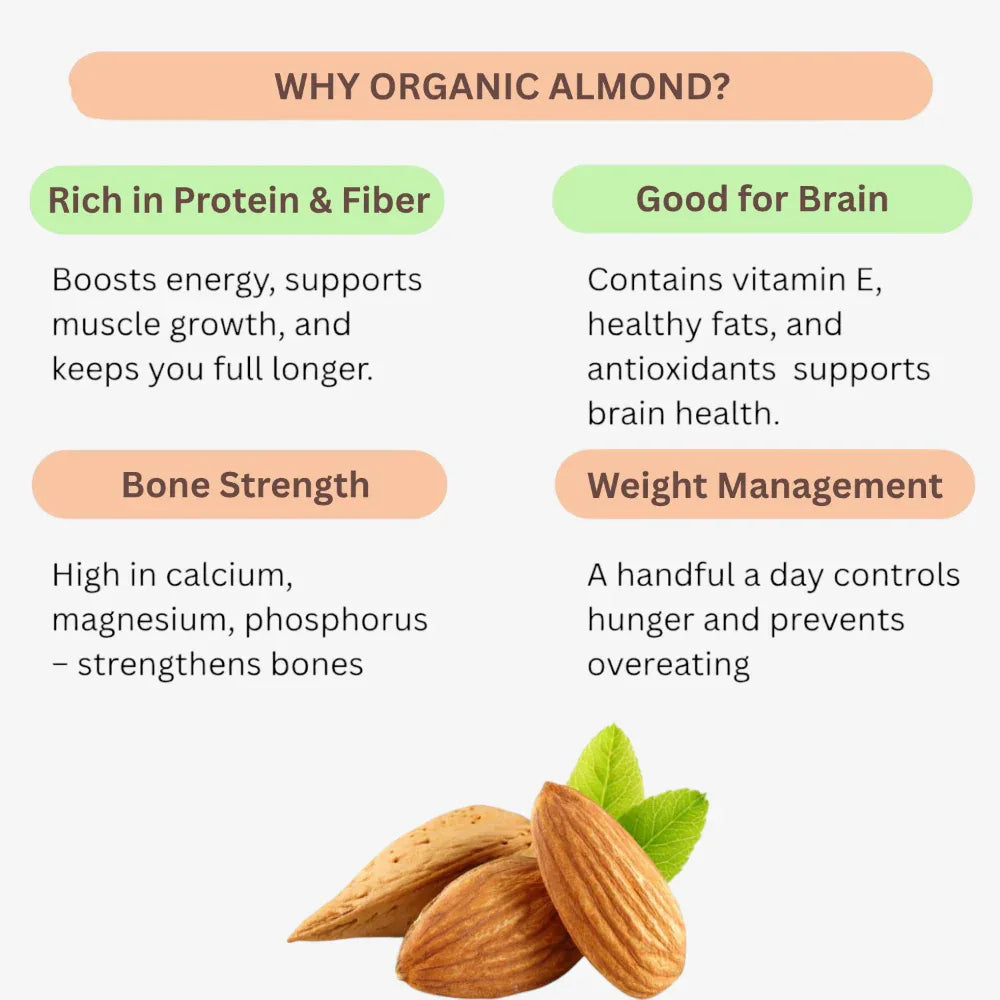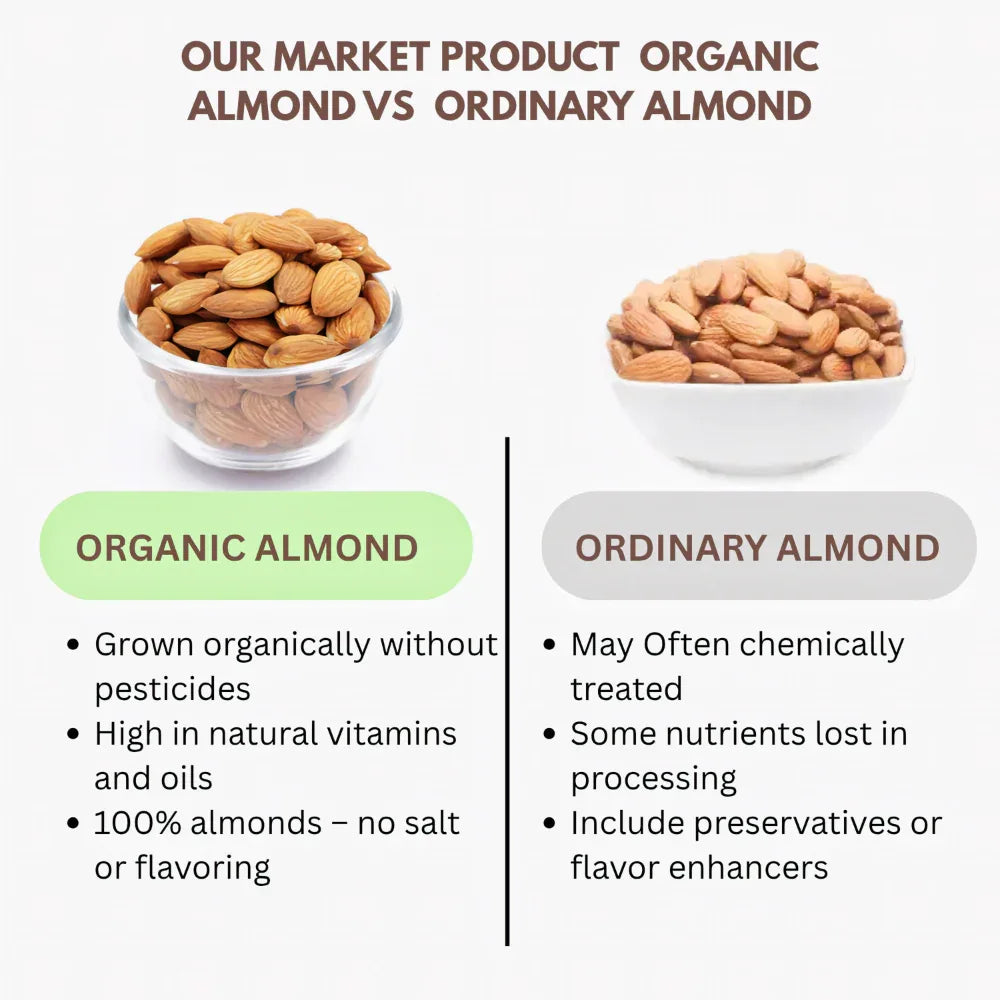Description
Almond – Description
Almonds are edible seeds from the fruit of the almond tree (Prunus dulcis), native to the Middle East and South Asia. They are commonly classified as nuts and are widely used in sweet and savory dishes.
Type: Nut/Seed
Taste: Mild, sweet, and nutty
Texture: Firm and crunchy
Color: Light brown skin with off-white inner seed
Nutritional Value: Rich in healthy fats, protein, vitamin E, magnesium, calcium, and fiber
Common Uses: Raw snacking, roasting, baking, almond milk, oil, flour, and garnishes in Indian sweets
🌿 Care Tips for Almond Storage & Use
✅ Storage Tips
Room Temperature: Store in an airtight container in a cool, dark place for up to 1 month.
Refrigeration: Keeps fresh for 6 months in the fridge.
Freezing: Can be frozen for up to a year for long-term storage.
Avoid Moisture: Keep almonds dry; moisture can cause mold or spoilage.
Protect from Light: Exposure to sunlight may cause rancidity—use opaque or dark containers.
🧼 Usage Tips
Soaking Almonds: Soak overnight to improve digestibility and nutrient absorption.
Peeling: After soaking, peel easily for baby food or sweet recipes.
Roasting: Roast at low temperature (150°C / 300°F) for 10–15 minutes to enhance flavor.
Grinding: Use as almond flour or powder in desserts and baking.
Organic Almond / தைமன் ஆர்கானிக் பாதாம் / थायमैन ऑर्गेनिक बादाम / థైమన్ ఆర్గానిక్ బాదం / ತೈಮನ್ ಆರ್ಗಾನಿಕ್ ಬಾದಾಮಿ / തൈമൻ ഓർഗാനിക് ആലമുണ്ട്
Additional Information
PRODUCT NAME : Thaiman Organic Almond / Badam / Nuts / Badam Paruppu - 250g
MANUFACTURER : Thaiman Organic
SELLER / MARKETING BY : Thaiman Organic
COUNTRY OF ORIGIN : India
NUMBER OF ITEM : 1
NET QUANTITY : 1
PACKAGE INFORMATION : Pouch
WEIGHT OF ITEM : 250g
ITEM DIMENTION LxWxH : 10x10x8 Centimeters
RETURN POLICY : Non returnable, and return available particular reasons only(read the Return policy below footer menu links)
SELF LIFE : 3 months
PRODUCT CONDITIONS : New
PRODUCT CATEGORIES : Badam
My Wishlist
Wishlist is empty.













